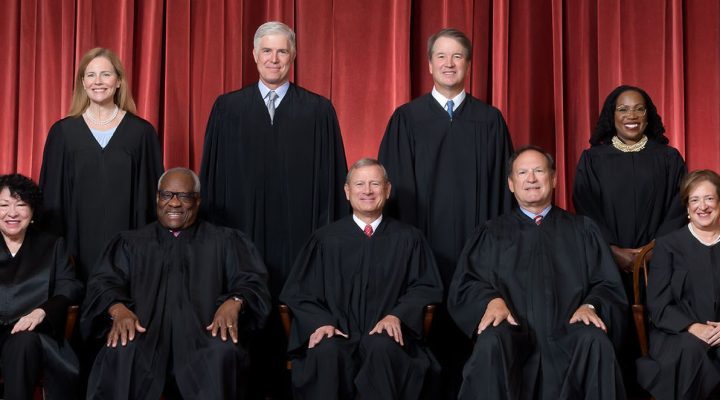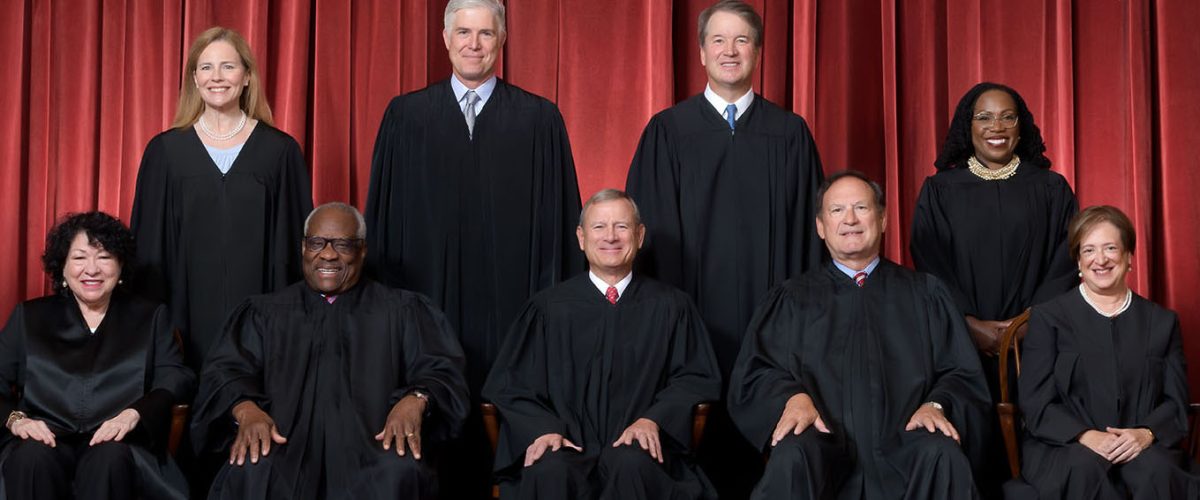Title 42 is a “temporary” policy that will not die.
And now the United States Supreme Court has given it a further stay of execution, to the delight of anti-immigration Republicans and to the dismay of those who work with migrants every day.
On Tuesday, Dec. 27, the high court delayed issuing a ruling on the legal validity of the Trump-era policy that prevents immigrants from entering the U.S. on the grounds that they could spread COVID-19.
In October, an official with the U.S. Centers for Disease Control told a Congressional panel that COVID had little to do with Trump administration implementing the obscure legal provision. It was, instead, a purely political move to advance the administration’s anti-immigrant agenda, according to Martin Cetron, director of the CDC’s division of global migration and quarantine.
And even though the policy was created by executive order of a sitting president, the courts have prevented the current sitting president from ending it.
Immigration advocates — including those associated with evangelical Christians — have repeatedly derided the policy as a cruel political move and unnecessary for national security or public health. At first, the Biden administration delayed revoking the Trump policy, but after a continuous outcry from immigration advocates relented — only to be sued by a coalition of Republican-led states demanding Title 42 remain in place, even though the public health crisis it purports to prevent no longer exists.
This effort has been led by Texas and its embattled attorney general, Ken Paxton. “I will continue to fight at every turn and do everything in my power to help secure our border and keep Texans safe,” he tweeted after the Supreme Court’s decision.
Sen. Dick Durbin, D-Ill, recently countered: “This is not about public health anymore. It is our excuse for not tackling the very real challenge in coming up with a border policy on a bipartisan basis.”
In a 5-4 decision, the Supreme Court blocked the Biden administration from lifting Title 42 and agreed to take up a case by Texas and other Republican states in the new year.
One of the problems with ending Title 42, as agreed by both sides, is that the backlog of immigrants created by Trump administration policies could suddenly overwhelm the nation’s already broken immigration system.
But that alone should not preclude the U.S. from following its own laws, Justice Neil Gorsuch wrote in his dissent to the majority court opinion. The “emergency” on which Title 42 was premised “has long since lapsed,” he said.
“I do not discount the states’ concerns,” he added. “Even the federal government acknowledges ‘that the end of the Title 42 orders will likely have disruptive consequences.’ But the current border crisis is not a COVID crisis. And courts should not be in the business of perpetuating administrative edicts designed for one emergency only because elected officials have failed to address a different emergency. We are a court of law, not policymakers of last resort.”
“Title 42 is a failed border framework.”
“Title 42 is a failed border framework,” said Jennie Murray, president of the National Immigration Forum. “It benefits smugglers, contributes to disorder at the border and is partially to blame for an increase in border crossings. November’s high number of border encounters is only the latest example.
“President Biden and Congress must implement secure, orderly and compassionate border solutions immediately. Border communities already have been experiencing challenges from the anticipated short-term increase in migration with Title 42’s end.”
She added: “We are encouraged that the administration has been planning to deal with increased migration upon Title 42’s end. It must follow through with humane, effective responses. It must not resort to exclusively deterrence-focused measures that do not work, such as restricting asylum between ports of entry, preventing asylum claims from people who have traveled through third countries, or instituting Title 42’s provisions under another name.
“Ultimately, Congress must also lead and address the border as part of broader, equally urgent immigration reforms.”
“The Supreme Court’s actions today are disappointing for advocates and devastating for migrants and those ministering to them in Mexico,” said Stephen Reeves of Fellowship Southwest, an interdenominational group working along the border. “It is hard to comprehend how a policy put in place at the start of the pandemic by the previous administration cannot be undone at this point by a new administration.
“Under Title 42, thousands of migrants remain vulnerable to exploitation and violence at the hands of cartels who are surely cheering this ruling,” he added. “Fellowship Southwest will continue supporting those who sacrifice so much to care for migrants, pray for justice from the court, and advocate for more humane and compassionate immigration policies.”
Related articles:
As immigration advocates suspected, Title 42 originated with White House, not with CDC
Title 42 is expelling the good people, not the bad people, border advocate explains
Even if U.S. government fails immigrants, faith groups say they’ll keep working


